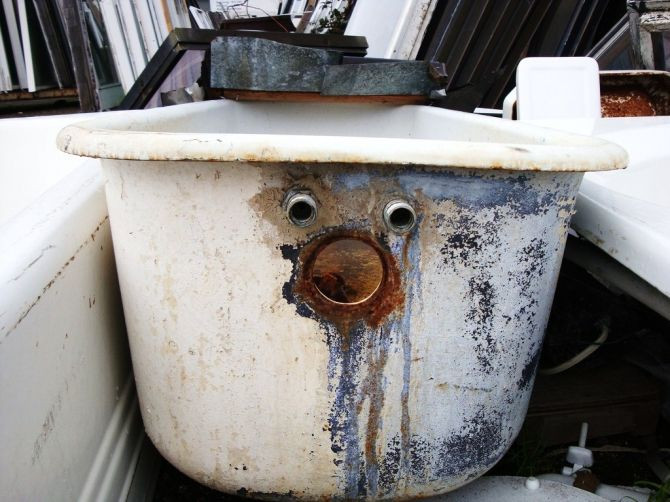CDC Warns About Toxic Bathtub Paint Remover Tied to 13 Deaths

U.S. health officials issued a warning Thursday about a widely used paint-stripping chemical after investigators linked it to 13 death in 10 states.
The U.S. Centers for Disease Control and Prevention said that the warning was based on research from Michigan State University scientists who discovered that 13 workers had died after using products containing methylene chloride to strip paint from bathtubs between 2000 and 2011.
Methylene chloride, a highly volatile, colorless, toxic chemical, is commonly used as a degreaser, process catalyst, and paint remover in industrial and home construction products.
“To use products containing methylene chloride safely, work areas must be well-ventilated, and when levels of methylene chloride exceed exposure limits even after implementation of engineering and work practice controls, workers must use respiratory protective equipment, such as tight-fitting, full-face, supplied-air respirators,” Kenneth Rosenman, chief of MSU’s division of occupational and environmental medicine, wrote in the CDC Morbidity and Mortality Weekly Report.
In 1997, the National Institute for Occupational Safety and Health had established a standard for methylene chloride which required that air monitoring, medical surveillance, hazard communication, and personal protective equipment must be accessible where methylene chloride is used in all occupational settings.
“Each death occurred in a residential bathroom with inadequate ventilation,” the CDC said in its report. “Protective equipment, including a respirator, either was not used or was inadequate to protect against methylene chloride vapor.”
The report said the chemical “has been recognized as potentially fatal to furniture strippers and factory workers but has not been reported previously as a cause of death among bathtub refinishers.”
The CDC said that using methylene chloride-based product in small, confined places like in residential bathrooms poses great risks for workers, and stressed that employee safety and public health agencies, manufacturers and other trade groups to “communicate the extreme hazards” of their use to employers, workers and to the general public.
“Employers should strongly consider alternative methods of bathtub stripping,” it said.
Co-writer Debra Chester revealed in the report that 52-year-old co-owner of a bathtub refinishing company was found unconscious after using a product containing methylene chloride and later died in 2010, and more recently woman from Iowa had died two weeks ago while refinishing a bathtub which was could have been because of exposure to methylene chloride.
The report noted that it is likely that the number of deaths associated with methylene chloride exposure is greatly underestimated because national databases do not include self-employed workers or consumers and additional heart disease deaths that may have actually been caused by methylene chloride exposure.
Published by Medicaldaily.com



























